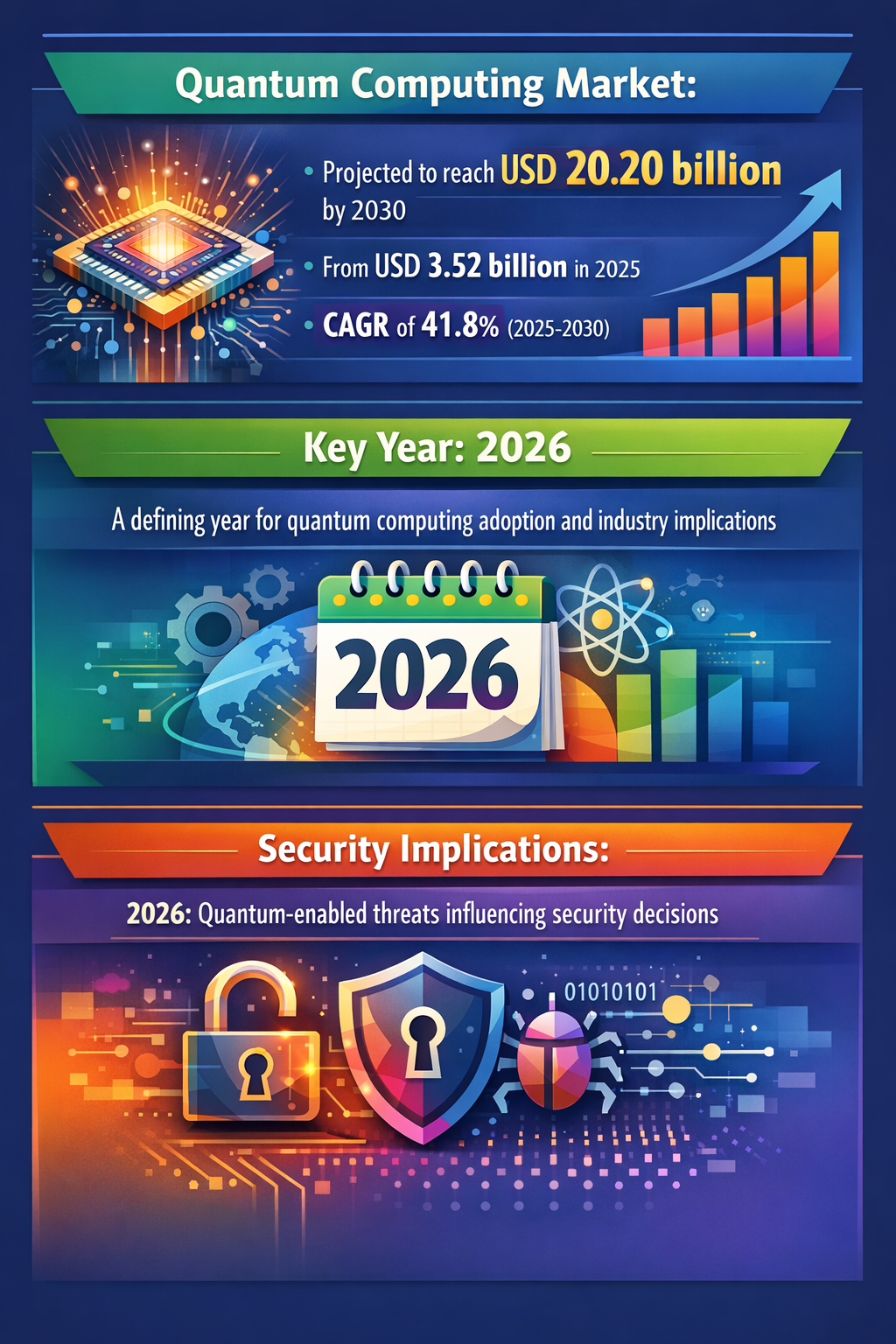Quantum Computing and the Imminent Disruption of Cybersecurity and Industry Value Chains
Quantum computing, once considered a distant and purely theoretical technology, is now signaling a profound shift with the potential to disrupt multiple industries over the next decade and beyond. Beyond its well-publicized promise to accelerate pharmaceutical research and financial modeling, a weaker but critical undercurrent is emerging: the growing threat to current cybersecurity frameworks and the transformative ripple effects this could produce across business, government, and society. This article explores this lesser-known but influential strand of quantum innovation and its strategic implications.
Introduction
As quantum computing inches closer to commercial viability, it simultaneously exposes systemic vulnerabilities in existing digital infrastructures. While many acknowledge quantum’s capacity to boost valuation in sectors such as pharmaceuticals, finance, and logistics, few appreciate the scale and immediacy of the security threat it introduces. Physical deployment timelines of quantum hardware suggest 2026 to 2030 as a defining window where both opportunities and vulnerabilities will become sharply visible. A weak signal now is the accelerating risk of “harvest now, decrypt later” attacks, whereby encrypted data captured today could be decrypted once quantum-powered decryption becomes feasible. This silent breach pathway creates urgency for strategic foresight in cybersecurity across multiple industries.
What’s Changing?
Quantum computing is poised to unlock up to $250 billion in industry value by enabling new levels of computational power for pharmaceuticals, finance, logistics, and materials science (RBC Thought Leadership). This emerging power leverages quantum bits (qubits) to perform calculations far beyond the capability of classical computers, potentially compressing timelines for drug discovery or complex logistics optimization.
However, alongside these transformative applications, a critical security vulnerability is becoming evident. Quantum computers will likely render existing asymmetric cryptographic algorithms — such as those securing internet transactions, communications, and banking — unsafe by around 2030 (Security Brief NZ). IT leaders now warn of “harvest now, decrypt later” tactics, in which sensitive, encrypted data obtained in the near term could be stored and cracked once quantum decryption becomes practical (Broadband Forum).
Despite quantum computing’s full commercial adoption being several years away, its use cases and threats in cybersecurity are manifesting imminently. Financial firms in particular face pressure to adapt quantum-resistant security strategies in 2026 and beyond (Retail Banker International), reflecting a broader industry trend toward preparing for quantum impacts ahead of capability maturity.
The year 2026 is emerging as a pivotal juncture for quantum adoption and awareness across sectors (Ian Khan Insights). Organizations will likely confront a dual imperative: exploit the burgeoning computational advantages and urgently overhaul cryptographic systems to mitigate existential risks.
Why is this Important?
The implications of quantum computing’s dual-edge potential are multifaceted and significant:
- Cybersecurity collapse risk: Quantum-enabled decryption threatens to undermine the foundational trust architecture of the modern digital economy. Failure to transition to quantum-resistant encryption could expose consumer data, intellectual property, government secrets, and critical infrastructure in a matter of years.
- Strategic industry disruption: While the quantum value unlock is notable in optimizing operations and innovation, industries risk damage from breached data confidentiality and integrity, which may destabilize markets, regulatory regimes, and consumer confidence.
- Long-term data confidentiality challenges: Sensitive data stored now could become vulnerable decades later if not protected with forward-looking cryptographic methods, introducing a novel dimension to data lifecycle management and compliance.
- Government and geopolitical impact: Nation-states investing in quantum capabilities potentially gain strategic advantage not only in technology but intelligence gathering, heightening risks of an arms race in quantum cryptographic capabilities and cyber warfare.
Implications
Preparing for a quantum future extends beyond technical fixes to present a broad strategic challenge for organizations:
- Proactive quantum risk assessment: Enterprises should inventory sensitive data, systems, and networks vulnerable to quantum attacks, prioritizing assets for quantum-resistant upgrades.
- Investment in quantum-safe cryptography: The National Institute of Standards and Technology (NIST) is currently standardizing new cryptographic methods suited for the quantum era. Organizations will need to assess and deploy these new algorithms well before quantum decryption capabilities arrive.
- Cross-industry collaboration: Because cybersecurity infrastructures interlock across industries — finance, healthcare, government — coordinated sector-wide efforts may be needed to establish resilient quantum-safe protocols and threat intelligence sharing.
- Policy and regulatory adaptation: Policymakers may be compelled to institute quantum security mandates and standards, balancing innovation with national security interests.
- Continuous horizon scanning: The pace of quantum advances remains uncertain, necessitating ongoing monitoring of technological, regulatory, and threat landscapes to adapt strategies dynamically.
Businesses able to navigate this transition could harness quantum’s advantages while insulating themselves from cascading risks. Conversely, failure to act could magnify both cybersecurity incidents and operational disruptions, potentially materializing as unseen “unknown unknowns.”
Questions
- Which data assets and operations are most vulnerable to “harvest now, decrypt later” attacks within your organization or sector?
- What is the current state of your cryptographic infrastructure relative to impending quantum vulnerabilities?
- How can collaboration among industry peers, government agencies, and cybersecurity providers accelerate the transition to quantum-resistant protocols?
- What policies or regulatory frameworks are emerging globally to govern quantum security, and how might these impact your strategic planning?
- How are you integrating ongoing quantum technology horizon scanning to adapt risk management dynamically?
Keywords
quantum computing; quantum cryptography; quantum security; quantum-resistant encryption; harvest now decrypt later; cybersecurity; cryptography
Bibliography
- Bain estimates quantum computing could unlock $250 billion in value across pharmaceuticals, finance, logistics, and materials science, RBC Thought Leadership.
- Quantum computing could compromise today's broadband encryption methods as early as 2030, with 'harvest now, decrypt later' attacks already being a concern, Broadband Forum News, February 2026.
- Advances in quantum computing will make widely used asymmetric cryptography unsafe by 2030, Security Brief NZ.
- Quantum computing remains years away from widespread commercial use, but financial services firms face an immediate quantum security threat in 2026, Retail Banker International.
- 2026 will be a defining year for quantum computing adoption and wider implications across industries, Ian Khan Insights.

